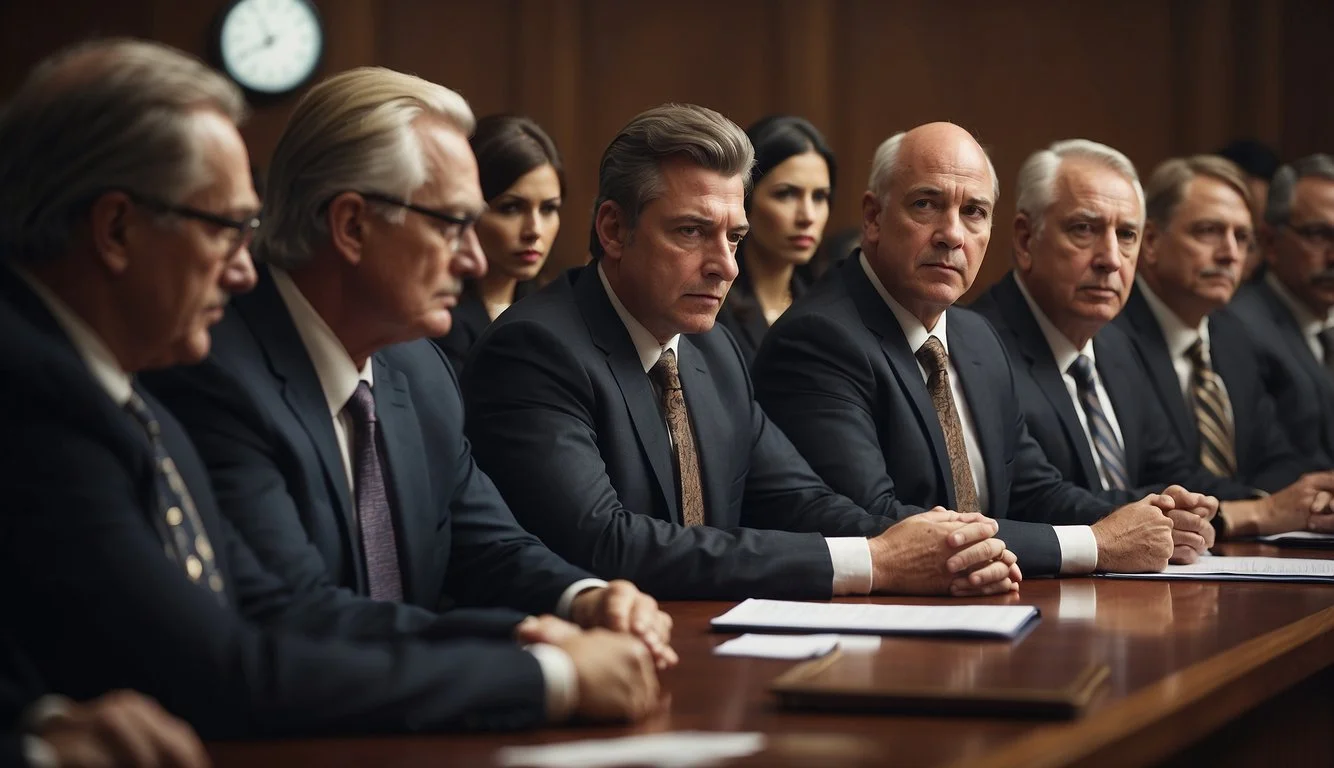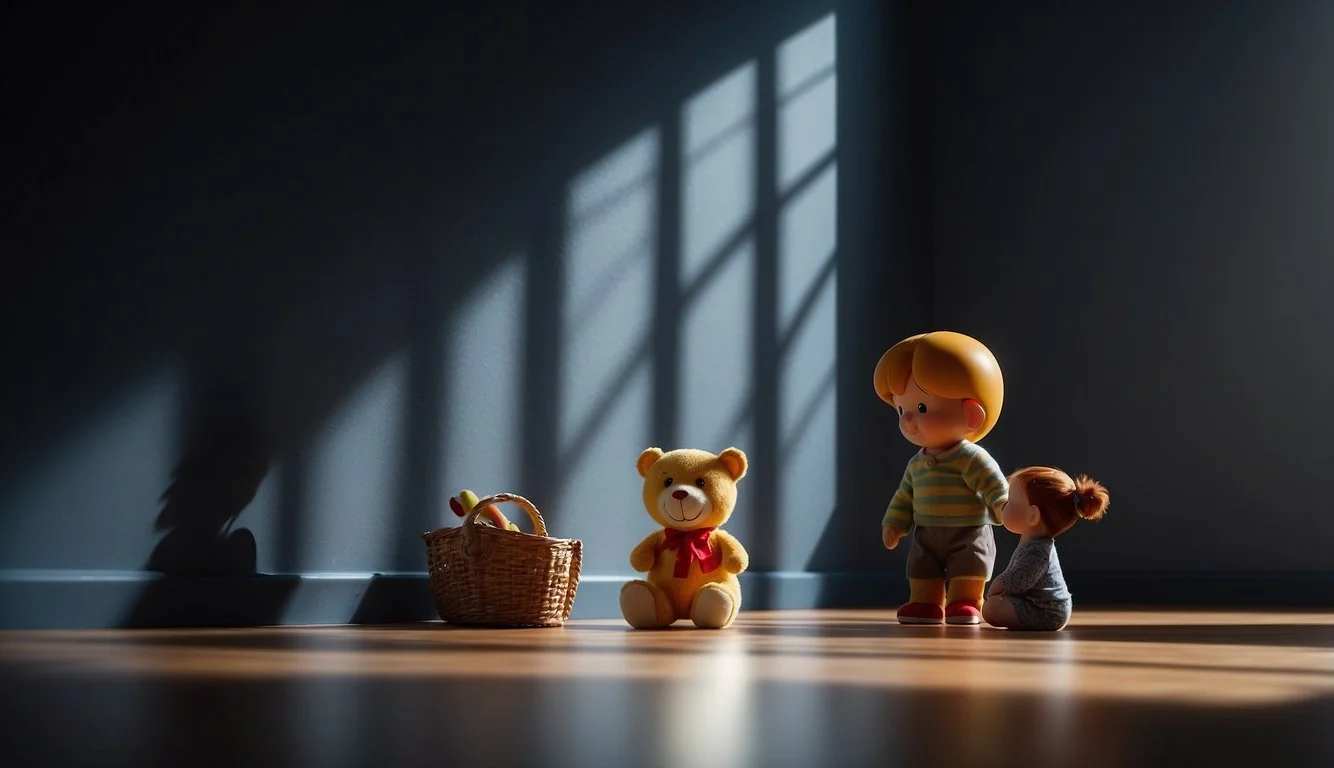Documentary Review: Leaving Neverland (2019)
A Closer Look at Controversial Allegations
The 2019 documentary "Leaving Neverland" has sparked intense discussions about the legacy of Michael Jackson. Directed by Dan Reed, this lengthy film delves into the allegations of sexual abuse made by Wade Robson and James Safechuck against the pop icon. The documentary presents an unflinching look at how these two men recount their experiences, providing detailed and personal testimonies that form the core of the narrative.
"Leaving Neverland" spans nearly four hours, focusing exclusively on Robson and Safechuck's stories and their impact on their families. By allowing the men to speak candidly, the film seeks to offer viewers an in-depth perspective on the abuse allegations. Its strength lies in its patience and willingness to let the men’s words resonate without interruption, making it a compelling watch for those interested in understanding the darker aspects of Jackson's complex legacy.
The release of "Leaving Neverland" at the Sundance Film Festival and its subsequent airing on HBO created a media frenzy, drawing both support and backlash. As the film painstakingly details the alleged abuse, it challenges the viewer to reconsider Jackson's public persona against the allegations brought forth. This documentary is not just a recounting of events; it is a reflection on the broader societal issues related to fame, power, and the protection of vulnerable individuals.
Background of 'Leaving Neverland'
"Leaving Neverland" is a 2019 documentary directed and produced by Dan Reed.
The film is centered on allegations by two men, Wade Robson and James Safechuck. They claim that they were sexually abused by Michael Jackson during their childhood.
The documentary is four hours long and divided into two parts.
Robson and Safechuck speak candidly and explicitly about their experiences. Their detailed accounts form the backbone of the film.
Released on HBO, "Leaving Neverland" caused significant public and media attention.
The film includes interviews solely with the two alleged victims and their families. No other perspectives are featured.
"Leaving Neverland" also highlights the recent legal ruling, Safechuck v. MJJ Productions, allowing their claims to proceed to trial.
The structure of the documentary is straightforward, focusing on in-depth interviews.
The filmmaker's approach forces viewers to confront uncomfortable truths about a celebrated figure.
The content of the documentary has sparked intense debate regarding Jackson's legacy.
Content Overview
"Leaving Neverland" centers on serious allegations against Michael Jackson, primarily conveyed through the explicit testimonies of Wade Robson and James Safechuck, paired with input from their families for a holistic perspective.
Allegations Against Michael Jackson
The documentary focuses on accusations of child sexual abuse against Michael Jackson. At its core, it addresses the specific claims made by Wade Robson and James Safechuck. These allegations detail repeated instances of inappropriate behavior and abuse at Jackson's Neverland Ranch and other locations.
The intensity and explicit nature of the claims are designed to portray the depth of the alleged misconduct. This section grounds the documentary in the stark reality of the abuse discussed, and it provides a clear context for the testimonies that follow.
Testimonies of Wade Robson and James Safechuck
Wade Robson and James Safechuck provide the primary narrative of "Leaving Neverland." Their detailed accounts form the backbone of the documentary, offering personal perspectives on their time with Michael Jackson. They recount specific incidents of abuse and manipulation, describing how these affected their lives long-term.
Their testimonies are graphic and personal, aiming to convey the emotional and psychological ramifications of their alleged experiences. The documentary heavily relies on these narratives to build its case, emphasizing the credibility and consistency of their stories.
Family Perspectives
The families of Wade Robson and James Safechuck play a crucial role in the documentary. They offer insights into how the alleged abuse impacted their family dynamics and relationships. Parents and siblings recount their interactions with Michael Jackson, often highlighting the trust and access he was granted.
These perspectives add depth, showcasing how the alleged abuse reverberated beyond the immediate victims. The inclusion of family testimonies seeks to provide a more rounded view of the situation, illustrating the broader consequences of the accusations on all involved.
Filmmaking Techniques
The documentary Leaving Neverland employs a range of filmmaking techniques to effectively convey its harrowing subject matter. These techniques play a crucial role in shaping the narrative and engaging the audience.
Interview Styles
"Leaving Neverland" primarily uses direct, candid interviews to tell the stories of Wade Robson and James Safechuck. The filmmaker, Dan Reed, chooses an intimate approach, focusing closely on the subjects' faces to capture raw emotions.
This method creates a personal connection between the interviewees and the viewers. The interviews are interspersed with still photographs and home video footage, adding context to the narratives and grounding the emotional testimonies in visual history.
Cinematography
The cinematography in "Leaving Neverland" is minimalistic, focusing on clean, unobtrusive shots that allow the story to take center stage. The use of natural lighting and simple backgrounds keeps the emphasis on the interviewees' accounts.
While the aesthetic is straightforward, it is also intentional, ensuring that the gravity of the content isn't overshadowed by dramatic visuals. Close-ups and medium shots dominate, creating an intense and personal viewing experience.
Editing
Editing in "Leaving Neverland" is meticulous, structuring the documentary in a way that maintains narrative coherence over its four-hour runtime. The film alternates between interviews and archival footage smoothly, ensuring a seamless flow of information.
Timing is key, with pauses and silences thoughtfully placed to allow the impact of the testimonies to resonate. This approach respects the serious nature of the subject matter, ensuring the viewer remains engaged and informed throughout.
Music and Sound Design
Music and sound design in the documentary are subtle yet impactful. The background scores are used sparingly, often allowing silence to speak louder, enhancing the gravity of the testimonies. When music is used, it's understated, designed to support rather than distract from the narrative.
Sound effects are minimal, focusing instead on the clarity of the interviewees' voices. This choice ensures that the heartbreaking stories of abuse are delivered with maximum emotional weight, keeping the audience's attention firmly on the content.
Public and Critical Reception
"Leaving Neverland" received an extensive array of responses from both the media and the wider audience, and it also garnered attention in industry circles.
Media Response
"Leaving Neverland" elicited a strong media reaction upon its release. Multiple prominent critics highlighted its emotional intensity and depth. Reviews often pointed to the candid and explicit testimonies of Wade Robson and James Safechuck as powerful and compelling elements of the documentary.
Dan Reed’s direction was frequently praised for its straightforward narrative approach. Media outlets like Roger Ebert's site and Variety noted its nearly 240-minute run time did not diminish the impact. Many reviews framed the documentary as a necessary if harrowing watch that brought crucial conversations to the forefront.
Audience Reaction
The general audience had mixed reactions to "Leaving Neverland." Some viewers found the film deeply affective, expressing support and empathy for the alleged victims. Social media platforms were filled with discussions, ranging from shock and sympathy to scepticism.
The documentary also sparked debates on Michael Jackson's legacy. Fans of the late singer were divided, with some defending him vehemently and others reconsidering their views. The polarized reactions underscored the film's significant cultural impact and its ability to generate widespread dialogue.
Industry Accolades
Within the industry, "Leaving Neverland" gained notable recognition. At the Sundance Film Festival where it premiered, it was received with strong commendation. The film's methodical storytelling and sensitive handling of complex subjects were acknowledged by many.
Accolades for the documentary included various nominations and wins. It was considered for awards in categories focusing on documentary filmmaking and social impact, emphasizing the quality and importance of its narrative. The prominence of these acknowledgments reflected the industry's recognition of the film's influential and thought-provoking content.
Legal and Ethical Considerations
"Leaving Neverland" raises crucial issues regarding the legal framework surrounding fair use and rights, while also highlighting serious ethical questions related to victim portrayal and filmmaker responsibilities.
Fair Use and Rights
The legal considerations of the documentary primarily revolve around intellectual property and personal rights. "Leaving Neverland" uses extensive footage and personal testimony. The filmmakers had to navigate complex copyright laws ensuring clips were used under fair use, which allows limited use without permission for commentary, criticism, and education.
Additionally, the rights of the individuals portrayed were taken into account. Wade Robson and James Safechuck's stories are central, and their permissions and consent to share personal stories were paramount. The documentary also needed to avoid defamation, ensuring statements made are backed by evidence, reducing the risk of lawsuits.
Ethical Implications
The ethical implications of "Leaving Neverland" are deeply significant. The documentary brings attention to the sensitive nature of child sexual abuse. The portrayal of Robson and Safechuck had to be handled with dignity and respect, ensuring their narratives were authentic and not sensationalized.
Ethically, the filmmaker, Dan Reed, had the responsibility to present their stories truthfully while ensuring mental health and emotional well-being of the subjects involved. The documentary sparked debates on the ethical responsibilities of media when covering traumatic personal histories, balancing public interest with sensitivity to the survivors' experiences. Reed's approach to allowing victims to reclaim their narratives demonstrates an ethical commitment to victims' voices.
Cultural Impact
Leaving Neverland created significant waves in both media and public discourse from the moment it premiered in 2019. The documentary, directed by Dan Reed, brought forward allegations of child sexual abuse against Michael Jackson by Wade Robson and James Safechuck. These accounts ignited widespread discussions about the legacy and public perception of Jackson.
The film spurred intense debate. Supporters of Jackson questioned the credibility of the accusers, while advocates for abuse survivors praised the film for shedding light on their experiences. This led to a divide between those who maintain Jackson's innocence and those who believe the accounts detailed in the documentary.
News outlets and social media were rife with discussions, reflecting the polarized public opinion. Public figures, including celebrities and activists, voiced their thoughts, further fueling the conversation. Some radio stations and streaming services reconsidered their playlists and policies regarding Jackson's music.
Education on child abuse saw an uplift. Organizations utilized the attention to promote awareness and preventive measures. The documentary sparked conversations around the complexities of celebrity worship and the importance of believing survivors.
Leaving Neverland also influenced the entertainment industry. It served as a catalyst for other documentaries, leading to a renewed interest in investigative storytelling. The intense focus on the film at festivals like Sundance underscored the growing demand for documentary films that tackle difficult subjects with unfaltering honesty.
The documentary’s impact on Michael Jackson’s legacy is undeniable. It forced a re-evaluation of his cultural contribution and left an indelible mark on how society engages with and scrutinizes allegations of abuse involving powerful figures.
Comparative Analysis
This section explores documentaries similar to "Leaving Neverland" and its impact on the documentary filmmaking industry. These elements highlight the film’s unique contribution and positioning within its genre.
Similar Works in Genre
"Leaving Neverland" shares thematic similarities with other documentaries that tackle sensitive and controversial subjects. Another example is the "Surviving R. Kelly" series. Both focus on allegations against iconic figures in the entertainment industry.
These works are structured to emphasize personal narratives. They achieve this by presenting victims' testimonies directly, creating an intimate and challenging viewing experience.
In addition, films like "The Hunting Ground" explore institutional failings in protecting victims. This comparative genre approach adds a broader societal perspective to individual stories, creating a multifaceted exploration of systemic issues.
Influence on Documentary Filmmaking
"Leaving Neverland" has significantly impacted how documentaries address controversial topics. The four-hour, two-part format allows deep dives into complex stories, setting a precedent for future projects.
Director Dan Reed's method of focusing solely on personal testimonies without additional narrators shifts the emphasis entirely onto the victims. This approach enhances the emotional intensity and authenticity of the narratives.
Moreover, the film's success has encouraged streaming platforms and networks to invest in long-form documentaries addressing social and personal injustices, leveraging detailed storytelling to drive powerful messages and awareness.
Conclusion and Reflection
"Leaving Neverland" offers a sobering look into the lives of Wade Robson and James Safechuck. Through their detailed testimonies, the documentary reveals the impact of their alleged abuse by Michael Jackson. The film's structure, focusing on personal narratives, makes it powerful and emotionally charged.
Dan Reed's direction ensures a comprehensive and thoughtful presentation. The documentary avoids sensationalism, instead prioritizing the voices of the accusers. This approach allows viewers to deeply engage with the material.
The four-hour runtime might seem daunting, but it is essential to grasp the complexities and nuances of the stories being told. The meticulous storytelling underscores the gravity of the allegations and the lasting effects of trauma.
One crucial aspect highlighted is the societal tendency to overlook or dismiss the accounts of victims. This documentary sheds light on the reasons many survivors find it difficult to come forward.
The use of interviews with Wade Robson and James Safechuck's family members adds depth to their accounts. Their narratives paint a vivid picture of the environment that allowed such alleged abuse to occur.
"Leaving Neverland" contributes significantly to the conversation about celebrity, power, and accountability. It challenges viewers to reflect on their perceptions and the importance of believing survivors.
In essence, this documentary remains a critical piece for understanding the complex dynamics of abuse and the silent suffering of its victims. It is a film that prompts reflection and dialogue, making it a substantial contribution to documentary filmmaking.




